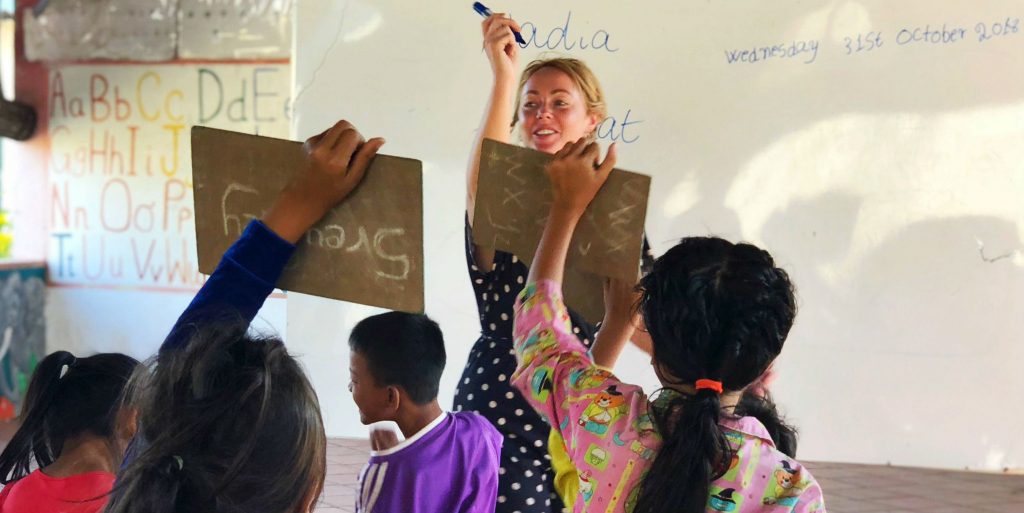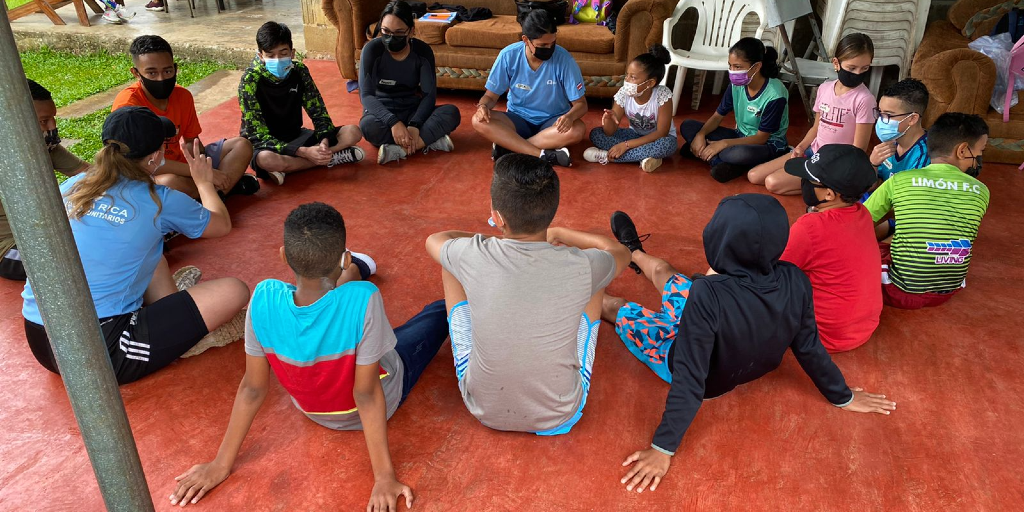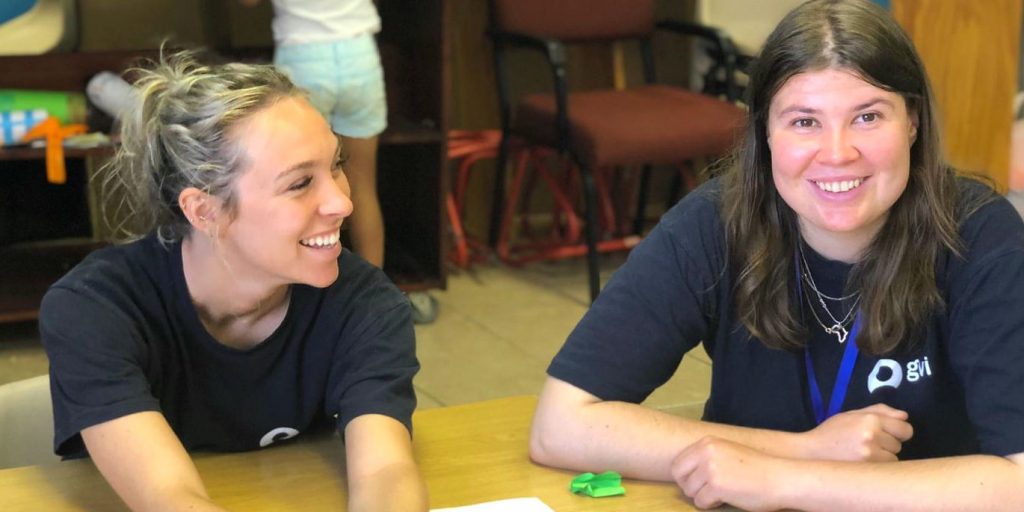Happiness is an emotional state characterized by feelings of joy, satisfaction, contentment, and fulfillment. While happiness has many different definitions, it is often described as involving positive emotions and life satisfaction.
When most people talk about happiness, they might be talking about how they feel in the present moment, or they might be referring to a more general sense of how they feel about life overall.
Because happiness tends to be such a broadly defined term, psychologists and other social scientists typically use the term ‘subjective well-being’ when they talk about this emotional state. Just as it sounds, subjective well-being tends to focus on an individual’s overall personal feelings about their life in the present.
Two key components of happiness (or subjective well-being) are:
- The balance of emotions: Everyone experiences both positive and negative emotions, feelings, and moods. Happiness is generally linked to experiencing more positive feelings than negative.
- Life satisfaction: This relates to how satisfied you feel with different areas of your life including your relationships, work, achievements, and other things that you consider important.
How to Know If You’re Happy
While perceptions of happiness may be different from one person to the next, there are some key signs that psychologists look for when measuring and assessing happiness.
Some key signs of happiness include:
- Feeling like you are living the life you wanted
- Feeling that the conditions of your life are good
- Feeing that you have accomplished (or will accomplish) what you want in life
- Feeling satisfied with your life
- Feeling positive more than negative
One important thing to remember is that happiness isn’t a state of constant euphoria. Instead, happiness is an overall sense of experiencing more positive emotions than negative ones.
Happy people still feel the whole range of human emotions—anger, frustrastion, boredom, loneliness, and even sadness—from time to time. But even when faced with discomfort, they have an underlying sense of optimism that things will get better, that they can deal with what is happening, and that they will be able to feel happy again.The Benefits of Optimism
Types of Happiness
There are many different ways of thinking about happiness. For example, the ancient Greek philosopher Aristotle made a distinction between two different kinds of happiness: hedonia and eudaimonia.
- Hedonia: Hedonic happiness is derived from pleasure. It is most often associated with doing what feels good, self-care, fulfilling desires, experiencing enjoyment, and feeling a sense of satisfaction.
- Eudaimonia: This type of happiness is derived from seeking virtue and meaning. Important components of eudaimonic well-being including feeling that your life has meaning, value, and purpose. It is associated more with fulfilling responsibilities, investing in long-term goals, concern for the welfare of other people, and living up to personal ideals.
Hedonia and eudemonia are more commonly known today in psychology as pleasure and meaning, respectively. More recently, psychologists have suggested the addition of the third component that relates to engagement. These are feelings of commitment and participation in different areas of life.
Research suggests that happy people tend to rank pretty high on eudaimonic life satisfaction and better than average on their hedonic life satisfaction.1
All of these can play an important role in the overall experience of happiness, although the relative value of each can be highly subjective. Some activities may be both pleasurable and meaningful, while others might skew more one way or the other.
For example, volunteering for a cause you believe in might be more meaningful than pleasurable. Watching your favorite tv show, on the other hand, might rank lower in meaning and higher on pleasure.2
Some types of happiness that may fall under these three main categories include:
- Joy: A often relatively brief feeling that is felt in the present moment
- Excitement: A happy feeling that involves looking forward to something with positive anticipation
- Gratitude: A positive emotion that involves being thankful and appreciative
- Pride: A feeling of satisfaction in something that you have accomplished
- Optimism: This is a way of looking at life with a positive, upbeat outlook
- Contentment: This type of happiness involves a sense of satisfaction
What Are the Types of Happiness?
How to Cultivate Happiness
While some people just tend to be naturally happier, there are things that you can do to cultivate your sense of happiness.
Pursue Intrinsic Goals
Achieving goals that you are intrinsically motivated to pursue, particularly ones that are focused on personal growth and community, can help boost happiness. Research suggests that pursuing these types of intrinsically-motivated goals can increase happiness more than pursuing extrinsic goals like gaining money or status.3
Enjoy the Moment
Studies have found that people tend to over earn—they become so focused on accumulating things that they lose track of actually enjoying what they are doing.4
So, rather than falling into the trap of mindlessly accumulating to the detriment of your own happiness, focus on practicing gratitude for the things you have and enjoying the process as you go.
Reframe Negative Thoughts
When you find yourself stuck in a pessimistic outlook or experiencing negativity, look for ways that you can reframe your thoughts in a more positive way.
People have a natural negativity bias, or a tendency to pay more attention to bad things than to good things. This can have an impact on everything from how you make decisions to how you form impressions of other people. Discounting the positive—a cognitive distortion where people focus on the negative and ignore the positive—can also contribute to negative thoughts.
Reframing these negative perceptions isn’t about ignoring the bad. Instead, it means trying to take a more balanced, realistic look at events. It allows you to notice patterns in your thinking and then challenge negative thoughts.What Is Cognitive Reframing?
Impact of Happiness
Happiness has been shown to predict positive outcomes in many different areas of life.
- Positive emotions increase satisfaction with life.
- Happiness helps people build stronger coping skills and emotional resources.
- Positive emotions are linked to better health and longevity. One study found that people who experienced more positive emotions than negative ones were more likely to have survived over a 13 year period.5
- Positive feelings increase resilience. Resilience helps people better manage stress and bounce back better when faced with setbacks. For example, one study found that happier people tend to have lower levels of the stress hormone cortisol and that these benefits tend to persist over time.6
- People who report having a positive state of well-being are more likely to engage in healthy behaviors such as eating fruits and vegetables and engaging in regular physical exercise.7
- Being happy may make help you get sick less often. Happier mental states are linked to increased immunity.8
Improving Your Happiness
Some people seem to have a naturally higher baseline for happiness—one large-scale study of more than 2,000 twins suggested that around 50% of overall life satisfaction was due to genetics, 10% to external events, and 40% to individual activities.9
So while you might not be able to control what your “base level” of happiness is, there are things that you can do to make your life happier and more fulfilling. Even the happiest of individuals can feel down from time to time and happiness is something that all people need to consciously pursue.
Get Regular Exercise
Exercise is good for both your body and mind. Physical activity is linked to a range of physical and psychological benefits including improved mood. Numerous studies have shown that regular exercise may play a role in warding off symptoms of depression, but evidence also suggests that it may also help make people happier, too.
In one analysis of past research on the connection between physical activity and happiness, researchers found a consistent positive link.10
Even a little bit of exercise produces a happiness boost—people who were physically active for as little as 10 minutes a day or who worked out only once a week had higher levels of happiness than people who never exercised.
Show Gratitude
In one study, participants were asked to engage in a writing exercise for 10 to 20 minutes each night before bed.11 Some were instructed to write about daily hassles, some about neutral events, and some about things they were grateful for. The results found that people who had written about gratitude had increase positive emotions, increased subjective happiness, and improve life satisfaction.
As the authors of the study suggest, keeping a gratitude list is a relatively easy, affordable, simple, and pleasant way to boost your mood. Try setting aside a few minutes each night to write down or think about things in your life that you are grateful for.Why You Should Write Down the Things You’re Grateful for Each Day
Find a Sense of Purpose
Research has found that people who feel like they have a purpose have better well-being and feel more fulfilled.12 A sense of purpose involves seeing your life as having goals, direction, and meaning. It may help improve happiness by promoting healthier behaviors.
Some things you can do to help find a sense of purpose include:
- Explore your interests and passions
- Engage in prosocial and altruistic causes
- Work to address injustices
- Look for new things you might want to learn more about
This sense of purpose is influenced by a variety of factors, but it is also something that you can cultivate. It involves finding a goal that you care deeply about that will lead you to engage in productive, positive actions in order to work toward that goal.How to Find Your Purpose In Life
Press Play for Advice On Reaching Your Dreams
Hosted by Editor-in-Chief and therapist Amy Morin, LCSW, this episode of The Verywell Mind Podcast, featuring best-selling author Dave Hollis, shares how to create your best life. Click below to listen now.
Follow Now: Apple Podcasts / Spotify / Google Podcasts / RSS
Challenges of Finding Happiness
While seeking happiness is important, there are times when the pursuit of life satisfaction falls short. Some challenges to watch for include:
Valuing the Wrong Things
Money may not be able to buy happiness, but there is research that spending money on things like experiences can make you happier than spending it on material possessions.
One study, for example, found that spending money on things that buy time—such as spending money on time-saving services—can increase happiness and life satisfaction.13
Rather than overvaluing things such as money, status, or material possessions, pursuing goals that result in more free time or enjoyable experiences may have a higher happiness reward.
Not Seeking Social Support
Social support means having friends and loved ones that you can turn to for support. Research has found that perceived social support plays an important role in subjective well-being. For example, one study found that perceptions of social support were responsible for 43% of a person’s level of happiness.14
It is important to remember that when it comes to social support, quality is more important than quantity. Having just a few very close and trusted friends will have a greater impact on your overall happiness than having many casual acquaintances.
Thinking of Happiness as an Endpoint
Happiness isn’t a goal that you can simply reach and be done with. It is a constant pursuit that requires continual nurturing and sustenance.
One study found that people who tend to value happiness most also tended to feel the least satisfied with their lives.15 Essentially, happiness becomes such a lofty goal that it becomes virtually unattainable.
“Valuing happiness could be self-defeating because the more people value happiness, the more likely they will feel disappointed,” suggest the authors of the study.
Perhaps the lesson is to not make something as broadly defined as “happiness” your goal. Instead, focus on building and cultivating the sort of life and relationships that bring fulfillment and satisfaction to your life.
It is also important to consider how you personally define happiness. Happiness is a broad term that means different things to different people. Rather than looking at happiness as an endpoint, it can be more helpful to think about what happiness really means to you and then work on small things that will help you become happier. This can make achieving these goals more manageable and less overwhelming.How to Make Your Health Goals S.M.A.R.T.
History of Happiness
Happiness has long been recognized as a critical part of health and well-being. The “pursuit of happiness” is even given as an inalienable right in the U.S. Declaration of Independence. Our understanding of what will bring happiness, however, has shifted over time.
Psychologists have also proposed a number of different theories to explain how people experience and pursue happiness. These theories include:
Maslow’s Hierarchy of Needs
The hierarchy of needs suggests that people are motivated to pursue increasingly complex needs. Once more basic needs are fulfilled, people are then motivated by more psychological and emotional needs.
At the peak of the hierarchy is the need for self-actualization, or the need to achieve one’s full potential. The theory also stresses the importance of peak experiences or transcendent moments in which a person feels deep understanding, happiness, and joy.
Positive Psychology
The pursuit of happiness is central to the field of positive psychology. Psychologists who study positive psychology are interested in learning ways to increase positivity and helping people live happier, more satisfying lives.
Rather than focusing on mental pathologies, the field instead strives to find ways to help people, communities, and societies improve positive emotions and achieve greater happiness.























:max_bytes(150000):strip_icc():format(webp)/critical-thinking-definition-with-examples-2063745-updated2020-10ac813131654257b3e637fe20050ef7.png)